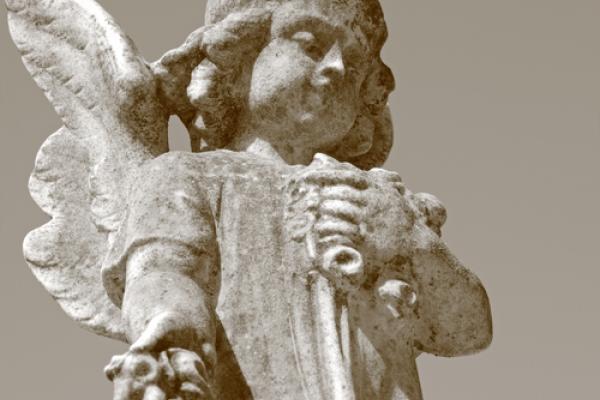The conversation yelling match around gun control is exhausting — both in terms of the ethical boundaries each side will breach to advance its cause, and the way our rhetoric has turned into an exercise in “crash-testing:” we always hit a wall in talking our good sense to the Dissenters, but are content to back up, add force, and try again. Because “One day, THEY will see the light. One day, THEY will become US”…
… crash!
The more gun violence we experience as a nation correlates to our panic in pursuit of the common good, however we define it. And get too many panicky people in a room – people who are certain they are right – and watch how skillfully they evade progress. I am a pastor in Chicago and I speak on behalf of all who serve in neighborhoods where violence has become the rule and not the exception: I am tired of you hitting the wall.
This course of action and righteous disrespect of Those-With-Their-Heads-You-Know-Where will not make us masters or better neighbors. It has made us dummies. And while we are arguing, our children are losing. In Chicago, and Baltimore, and Detroit, and Newtown, and in Washington. They are losing because we are competing to see who can make the wall topple over the other first. Because we are arguing over rights from the wrong perspective.
This became clear to me just five days after Hadiya Pendleton’s death, on a Sunday. Like all pastors, imams, and rabbis worth the paper their ordination is printed on, I too felt a sacred responsibility to respond faithfully to the collective tragedy of our city, to offer words of hope and lift up (as a prophet, yes!) for soon tearing down the systems that contribute to trauma, and hopelessness, and finally, violence. Before delivering these carefully prepared notes – on the validities of the Second Amendment, alongside the realities of access to illegal guns, and much more – I performed first our weekly ritual of opening the microphone to hear joys and concerns from the community. A teenage girl rose and approached the mic.
“Hadiya was one of my best friends …”, she said, too overwhelmed to speak without being interrupted by bursts of tears.
All tragedy is an interruption. Every death is overwhelming.
She continued, “I’m afraid to go outside now. It doesn’t even matter who you hang with anymore. It can happen to me anywhere. I’m afraid I’m going to … die.” Her words sat stiff in the air. There was no sermon needed. No advocacy for stricter gun laws. She whispered at the wall, and it collapsed.
On behalf of an entire generation that teenage girl whispered between sobs that we were failing her. We – legislators, we – people of faith, who are entrusted with a message that, “We will make the world better for you” – have laws that serve as crumbs on her dinner table. The message of this coming Easter is that death does not have the final word in the life of Jesus nor with any of us. But “Anything is Possible!” is a failed message if we do not work to show signs of life among the dead piling up around us.
It means we must pay attention to the living. In our cries of various freedoms, let us give dignity to the children who are alive and hear their cries. As a pastor and first-responder I can tell you this: they want a better world. They want to feel safe. Every time another child dies and nothing comes from it, Easter becomes more and more meaningless to those who witness death all around them but see no signs of life. The dead are apparent – we use their names as political ammo, sometimes AT THEIR FUNERALS – and we know that unchecked access to guns can destroy a community many times over. But the living we have ignored, and they are crying to us.
Some of our children are yet alive. From where I am, on the ground, I can provide service that affects a few but can only triage an entire community. Laws must change that better protect the living and honor the dead. Laws that govern the whole must reflect the realities of those affected least and most, and must be malleable enough apply in urban and rural settings. In other words, we’re going to have to work together if there will be any signs of life in the discussion to come.
Easter is worth our celebrating, whether Christian or not; it serves as a necessary reminder that Life Persists: we must as well. And if we cannot rise above this current level of bickering discussion, we show that our country is as dead as the bills we fail to pass. Dead, as the people we ignore. Dead, as the dummies who run into the walls again and again. As dead as Easter.
Julian DeShazier has served as the Senior Minister of University Church in Chicago. A native of the city, he graduated from Morehouse College and the University of Chicago Divinity School. Prior to his current position, Julian served as Teen Pastor at Covenant United Church of Christ, and has also worked with the Coca-Cola Leadership Program and Fund for Theological Education. He is also an award-winning musician and songwriter, known to many as “J.Kwest.”
Image: Angel statue, Malgorzata Kistryn / Shutterstock.com
Got something to say about what you're reading? We value your feedback!
